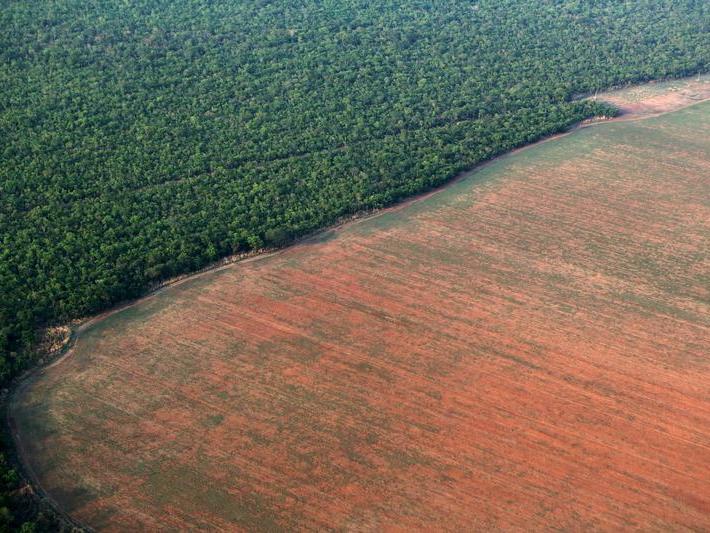Illegal gold mining is destroying Amazon rainforest, research shows
'Illegal mining can kill us,' indigenous leader warns

Your support helps us to tell the story
From reproductive rights to climate change to Big Tech, The Independent is on the ground when the story is developing. Whether it's investigating the financials of Elon Musk's pro-Trump PAC or producing our latest documentary, 'The A Word', which shines a light on the American women fighting for reproductive rights, we know how important it is to parse out the facts from the messaging.
At such a critical moment in US history, we need reporters on the ground. Your donation allows us to keep sending journalists to speak to both sides of the story.
The Independent is trusted by Americans across the entire political spectrum. And unlike many other quality news outlets, we choose not to lock Americans out of our reporting and analysis with paywalls. We believe quality journalism should be available to everyone, paid for by those who can afford it.
Your support makes all the difference.An uptick in illegal gold mining is destroying the Amazon rainforest and endangering the lives of local populations, according to new research that tracks the scale of the impact.
The research uses satellite imagery to map 2,312 illegal sites across six South American countries – Venezuela, Brazil, Bolivia, Colombia, Ecuador and Peru.
While illegal mining has always plagued the region, the report says current levels are “not comparable to any other period of its history.”
“The scope of illegal mining in the Amazon, especially in indigenous territories and protected natural areas, has grown exponentially in recent years, with the rise in the price of gold,” said Beto Ricardo, Executive Secretary of the Amazon Socio-environmental, Geo-referenced Information Project (RAISG), which carried out the research.
Gold prices rocketed following the global recession in 2009, sparking a gold rush which saw illegal miners flocking to the Amazon to capitalise.
One of the most damaging effects of gold mining is mercury poisoning, which the report described as the “invisible evil” contaminating the region and its inhabitants.
Large quantities of mercury are used to purify gold, and residue contaminates the soil, rivers, and animals that inhabit them.
Mercury levels in fish build up as larger fish feed on smaller fish, intensifying the negative effects on humans who consume them. Symptoms of mercury poisoning can include cognitive and motor impairment and vision loss.
One of the worst affected regions is an area stretching between Brazil and Venezuela, home to the Yanomami indigenous people, with 55 illegal mining sites found in protected areas. A 2014 study found that 92 per cent of all samples collected from the Yanomami tribe presented high levels of contamination, according to the Instituto Socioambiental (ISA) in partnership with the Oswaldo Cruz Foundation (Fiocruz).
“Illegal mining can kill us,” said Agustin Ojeda, an indigenous leader of Venezuela’s Shirian indigenous people, in the report.
On top of mercury contamination, Mr Ojeda added: “The mining wells allow for the reproduction of mosquitoes that bring diseases, such as malaria.”
Another devastating side-effect of gold mining is deforestation and degradation of protected natural areas.
Unfortunately, this increase in unregulated mining shows no signs of slowing down. Environmentalists have had cause for alarm with the election of right-wing Jair Bolsonaro as president of Brazil, who has pledged to allow mining and other economic activity in protected indigenous lands in the Amazon.
Mr Bolsonaro, who will take to office on 1 January, has previously said: “Environmental politics can’t muddle with Brazil’s development.”
“Today, the economy is almost back on track thanks to agribusiness, and they are suffocated by environmental questions.”
His prioritisation of agriculture over conservation, and advocacy of looser environmental regulations, suggests a bleak future for the Amazon rainforest, 60 per cent of which is situated in Brazil.
Additional reporting by Reuters
Join our commenting forum
Join thought-provoking conversations, follow other Independent readers and see their replies
Comments